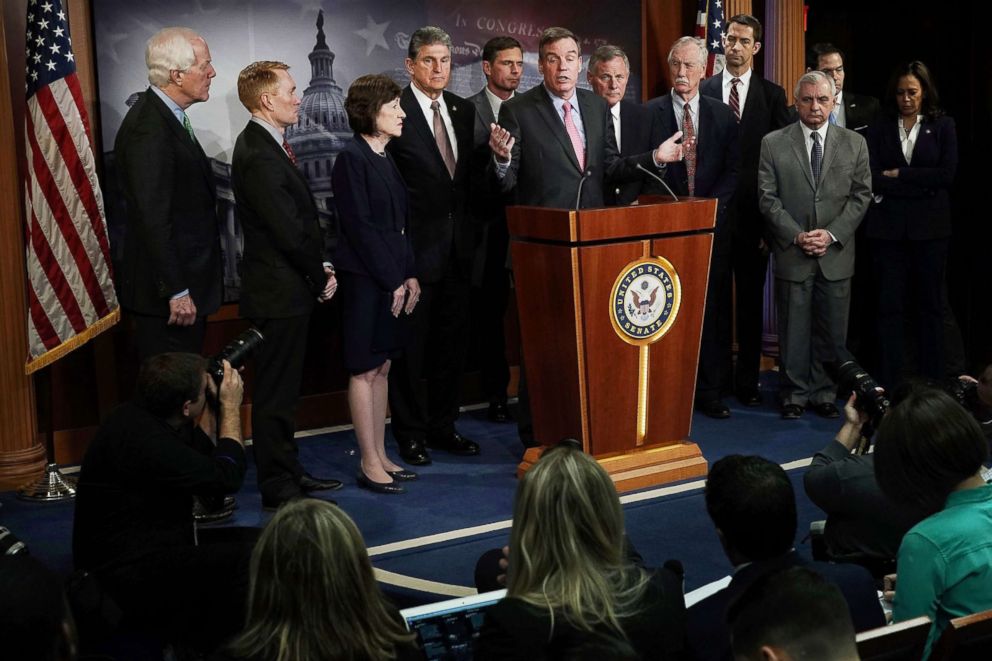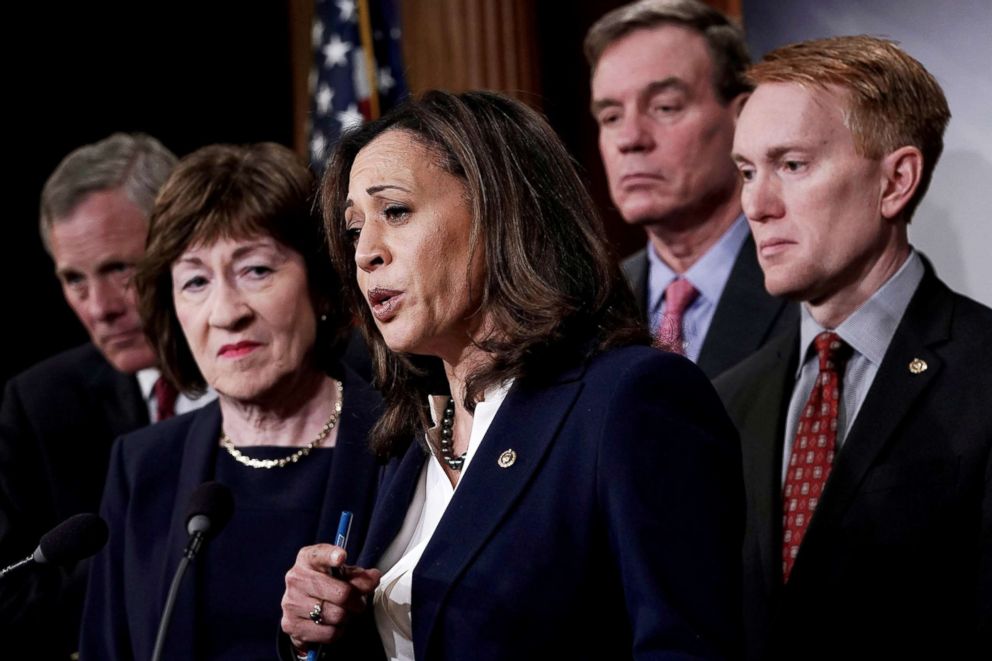Senate Intel releases election security recommendations
The recommendations come after a 14-month committee investigation.
As President Donald Trump Tuesday was congratulating Russian President Vladimir Putin on his election victory, on Capitol Hill lawmakers were sounding the alarm about Russia’s meddling in the 2016 U.S. election and the need to take urgent action to prevent it from happening again.
The Senate Select Committee on Intelligence released six recommendations for shoring up U.S election system security in the wake of Russia's attempted interference in the 2016 U.S. presidential elections. The suggestions for states range from a return to paper ballots to clearer communications from federal officials about foreign intrusions.
“Let me say this with a great deal of confidence, it is clear the Russian government was looking at the vulnerabilities in our election system,” chairman Richard Burr of North Carolina said at a news conference, adding, “There is no evidence that any vote was changed.”

As part of its more than 14-month-long probe, the panel interviewed officials from nearly all of the more than 20 states whose voting systems were scanned by Russian government-backed hackers in 2016.
Committee staff also spoke to numerous former and current high-level administration officials, as well as officials from the National Security Council, Department of Homeland Security, the FBI and other intelligence agencies, along with analyzing “countless intelligence products,” Burr noted.
During the 2016 election, the committee charged that neither the FBI nor DHS provided sufficient warning to the affected states and the right officials were not informed.

Senators were "disappointed" that state and federal officials “were not more on their game,” the top Democrat on the committee, Sen. Mark Warner of Virginia, said, decrying the fact that it took DHS officials nine months to notify states that their election systems “had been messed with.”
“The warnings did not provide enough information” or go to the right officials, Sen. Susan Collins, R-Maine, said, noting that the FBI, specifically was not detailed and clear in its warning to states of foreign interference.
“The Russians were relentless” in trying to undermine the 2016 election, she said.
“Clearly we’ve got to get some standards in place so that at the end of the day [the states] can certify their vote totals,” Burr said.
But the committee is virtually powerless to enforce any of their findings. States are in charge of their own elections and therefore, the committee will not be producing a legislative fix.
The lack of authority to legislate change is a poignant reminder of how difficult and cumbersome this process has been for members, as they attempt to prevent future cyber-attacks on the U.S. election system.
Burr held out hope that some of their concerns can be addressed in the upcoming omnibus spending bill due out this week. The bill includes roughly $360 million for state election security efforts, but state officials have indicated that’s not nearly enough.
“We hope Congress will fulfill its commitment to the states by appropriating the remaining $396 million in Help America Vote Act funds. This money could be disbursed quickly and would provide states with much-needed resources to further prepare for the 2018 election,” the National Association of Secretaries of State said in a statement to ABC News.
With the midterm elections around the corner, Sen. James Lankford, R-Okla., warned that bad actors could target U.S. systems again, noting Russia had provided “a playbook” that could be used by others.
Asked by ABC News if these systems are any safer today than they were during the 2018 election, Sen. Kamala Harris of California said: “We're working on that.”
“I think it’s important to underscore that we have discovered no evidence that votes were changed in the last election but it is nevertheless troubling that the Russians made such efforts to probe the election systems,” Collins said. “I think we still have a long ways to go.”
The new recommendations come as the Intelligence Committee wraps up the first portion of its wider investigation into Russia meddling in the 2016 race, including whether or not there was collusion with the Trump campaign.
A hearing on the new recommendations is expected to be held Wednesday. DHS and election officials are expected to testify.
Burr has said he hopes to wrap up the remaining three components of the probe — the Intelligence Community Assessment of Russia meddling with a preference for then-candidate Trump, the role of social media platforms, and whether or not there was collusion — by mid-summer.
The next release/action is expected in roughly 30 days, though a committee aide told ABC News that that is likely an “ambitious timetable, though hope springs eternal.”
ABC News' Lauren Pearle contributed to this report.




